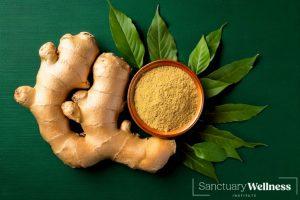- Nicholas DiBella
- Published: August 17, 2022
- April 30, 2025
- Fact-checked by Dr. Desiree Granados
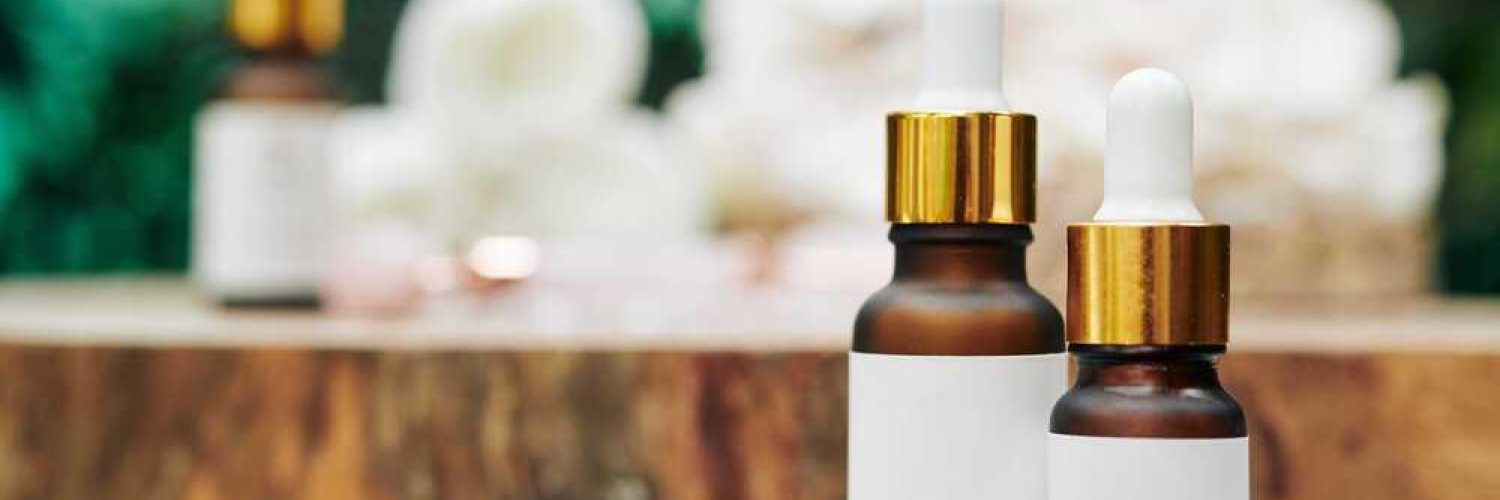
Essential oils are concentrated plant extracts that are known to offer a range of health benefits, from reducing stress and anxiety to supporting better sleep and fighting off harmful microbes. Numerous studies suggest that certain essential oils are antiviral, making them promising complementary therapies for combating viruses such as the flu COVID-19.
In this article, we’ll share some of the latest scientific research and information about the best antiviral essential oils. However, remember that it’s always safest to consult a healthcare professional before incorporating essential oils into your wellness routine.
Can Essential Oils Kill Viruses?
Essential oils are the extracts that give plants a fragrant aroma. They’re known for their health benefits and are generally applied to the skin or inhaled through the nose as aromatherapy. Essential oils also offer therapeutic benefits to the body and mind such as reducing stress, inflammation, and anxiety while improving sleep.
Along with those advantages, some essential oils offer antimicrobial, antiviral, or virucidal properties, so they can prevent and kill viral pathogens, fungi, and bacteria. “Antimicrobial” refers to the ability to kill small living organisms like bacteria, viruses, fungus, and parasites. The term “antiviral” refers to chemical compounds that inhibit the life of a virus, while “virucidal” indicates the compounds actually deactivate or destroy the virus.
Essential oils get their germ-fighting power from natural compounds like aldehydes and phenols. Aldehydes can help kill bacteria, fungi, and some viruses by breaking down their structure. Phenols also help fight bacteria and protect your body with their strong antioxidant properties.
Evidence suggests that some essential oils can kill viruses. For example, a 2021 study concluded that eucalyptus essential oil can kill viruses before they infect cells. The oil works by damaging the virus itself, especially its outer parts (like the envelope and proteins it uses to enter cells). This makes it harder for the virus to stick to or get inside human cells.
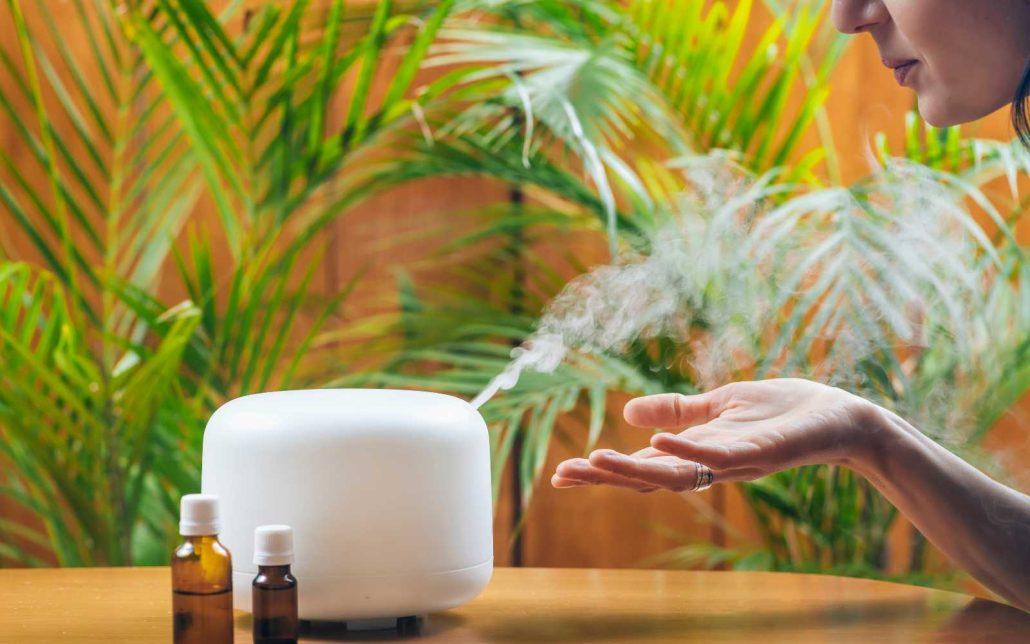
Which Essential Oil Kills Flu Virus?
According to a 2018 study, 11 of 62 tested essential oils demonstrated clear signs of fighting influenza. The following essential oils were the most effective at combating influenza:
- Marjoram
- Clary sage
- Star Anise
All three of these oils contained linalool, which suggests this is a key antiviral component. The study found that these oils were even more effective at fighting the flu than oseltamivir, generic for “Tamiflu.”
Other essential oils that had antiviral effects on influenza include:
- Rose
- Patchouly
- Ylang ylang
- Fennel
- Lime
- Ginger
- Estragon
Another 2022 study concluded that Tea tree oil (TTO) is also an effective disinfectant against the flu.
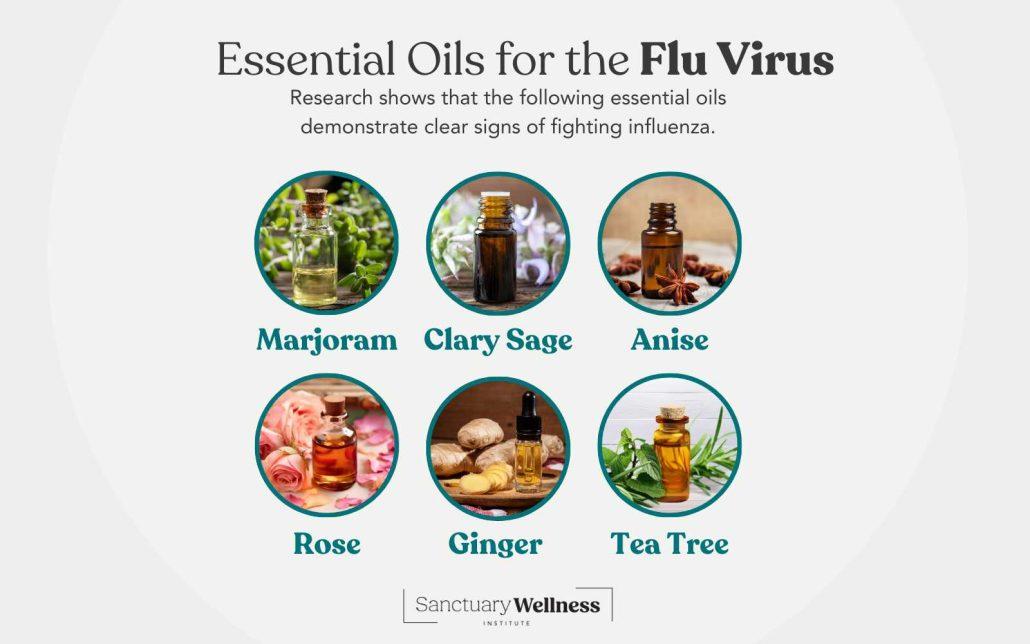
Do Essential Oils Kill COVID-19?
Several studies have concluded that some essential oils are effective at fighting the Covid virus. The 2021 study we referenced above concluded that essential oils like eucalyptus might stop the Covid infection, as well as virus reproduction. Its computer-based studies suggested that certain compounds in the oil (like 1,8-cineole and α-pinene) can block a key enzyme that viruses use to multiply, especially viruses like SARS-CoV-2 (the one that causes COVID-19).
Another study in 2022 concluded that essential oils show promise as inhaled treatments for fighting COVID-19. They may help by directly killing the virus and by reducing inflammation, supporting the immune system, and acting as antioxidants. Because of this, they should be tested in animals and eventually in human studies.
Essential oils that were found most effective at fighting the Covid virus were:
- Eucalyptus Oil: Blocks viral entry, anti-inflammatory
- Garlic Oil: Antiviral, inhibits viral replication
- Lemon and Geranium Oils: Inhibits viral entry
- Bay Laurel: Inhibits viral replication
- Juniper Oil: General antiviral and anti-inflammatory effects
Studies have also shown that Tea tree oil (TTO) is effective at fighting Coronavirus.
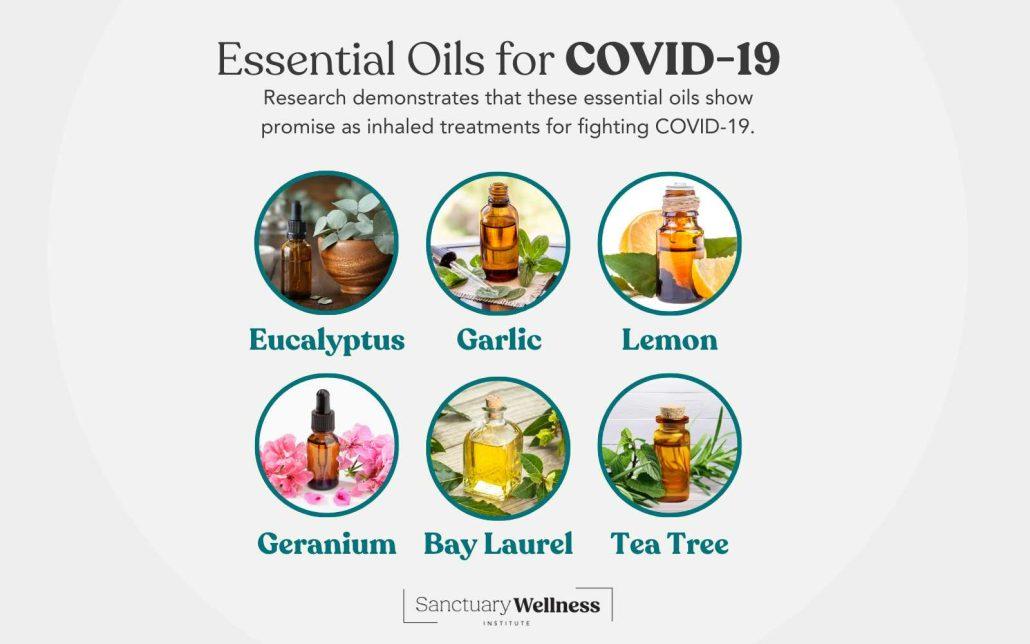
How to Use Essential Oils for Combating Viruses
Before relying on essential oils as antivirals, here are a few important notes to remember:
- Look for research-backed evidence of that essential oil having antiviral activity. (Just because a recipe exists online doesn’t mean it’s effective)
- Some essential oils need to be diluted to work properly and safely, and not all oils are equally helpful.
- If you’re feeling unwell and your symptoms persist or worsen, it’s important to consult a doctor.
- Essential oils should not be ingested, as they pose a risk of toxicity.
With that being said, here are a few suggestions for how to use essential oils to benefit from their antiviral properties:
Aromatherapy for Killing Viruses
Studies suggest that inhalation of essential oil vapors is the most effective method for combating viruses. One aromatherapy method is to add 1-2 drops of essential oil to a bowl of steaming water, cover your head with a towel, and inhale the steam.
Another popular option is to use a diffuser that will disperse essential oils into the air. You may also simply open your essential oil bottle and take a few deep breaths (being careful not to make skin contact).
You can also apply a few drops of essential oil to your shower walls. The steam from the hot water will release the aromatic compounds, allowing you to inhale them.
Massage Essential Oils into Skin
To fight viruses within your body, you can try massaging essential oils on your skin. The oils will enter through your pores and into your bloodstream, providing their therapeutic effects.
To prevent irritating your skin, use a carrier oil to dilute the essential oil before applying it to your skin. Good carrier oils include olive oil, coconut oil, jojoba, sweet almond oil, and argan oil.
You can also use the carrier oil method by adding properly diluted essential oils to your bath.
Using Essential Oils as Disinfectants
Essential oils might also work as disinfectants or cleaning agents that kill viruses. To make an essential oil disinfectant spray or mixture, combine 10-15 drops of your chosen essential oil with 1/2 cup of rubbing alcohol, 1/2 water, and 1/4 cup white vinegar. Use a spray bottle or damp washcloth to apply the cleaning agent to high-touch, germ-prone surfaces in your home, such as kitchen counters, bathroom surfaces, and doorknobs.
Does Tea Tree Oil Kill Viruses?
Yes, tea tree oil (melaleuca alternifolia), which comes from the tea tree leaves, has demonstrated the ability to kill viruses and bacteria like:
- Influenza
- COVID-19
- Streptococcus pneumoniae
- Pseudomonas aeruginosa
- Enterococcus faecalis
- Staphylococcus epidermidis
Remember: You should never ingest tea tree oil in any form because it’s highly toxic. Instead, try inhaling with aromatherapy or diluting the oil and massaging into your skin.
Does Eucalyptus Kill Viruses?
Eucalyptus globulus can reduce inflammation, relieve asthma symptoms, and lower stress. It might also fight pathogens and viruses like:
- COVID-19
- P. aeruginosa
- E. coli
- Shigella spp.
- Salmonella typhi
- Streptococcus pyogenes
- S. aureus
Remember: You should never ingest eucalyptus oil in any form because it’s highly toxic. Instead, try inhaling with aromatherapy or diluting the oil with a carrier oil and massaging into your skin.
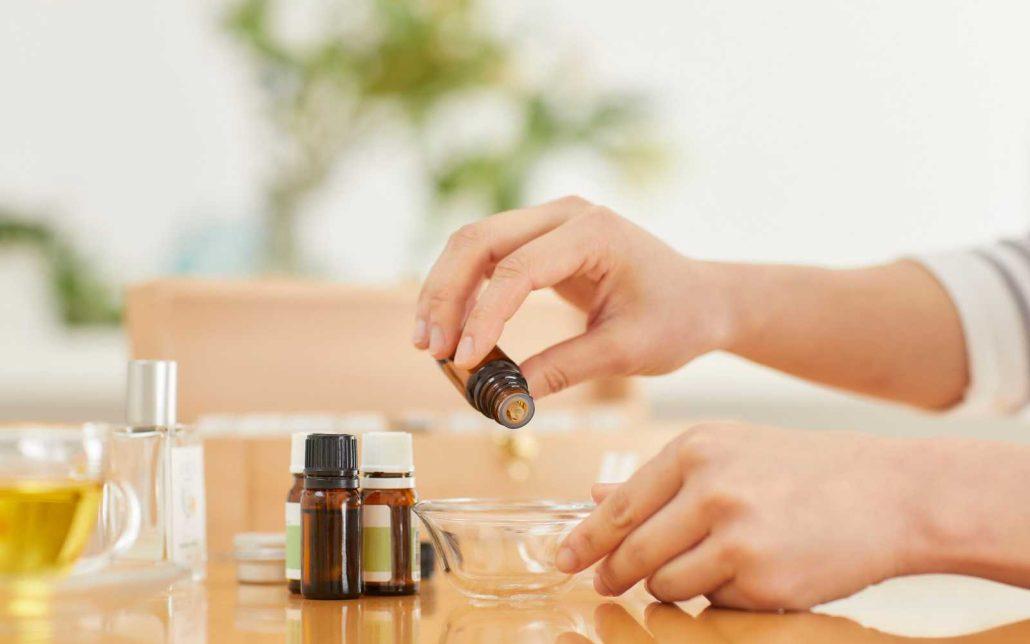
What is the most powerful antiviral essential oil?
While there’s no definitive answer to which essential oil is the most powerful, star anise, eucalyptus, and tea tree oil are among the most commonly studied and proven to be effective against viruses. For instance, a 2011 study demonstrated that star anise oil reduced herpes simplex virus (HSV-1) infectivity by 99%.
Eucalyptus oil is known to contain compounds that can inhibit viral replication and reduce inflammation, making it beneficial for respiratory health. Tea tree oil, although mainly recognized for its antibacterial properties, has also shown promise in preventing influenza viruses from entering cells.
Conclusion
Essential oils are a natural and promising way to support your health by potentially fighting off viruses, bacteria, and other harmful microbes. While some essential oils, like eucalyptus, tea tree, and garlic oil, have shown antiviral properties in studies, it’s important to remember that they should be used responsibly and safely. Always dilute essential oils before applying them to your skin, and consult a healthcare professional if you’re feeling unwell or have concerns about using them.
Aromatherapy, skin application with a carrier oil, and even using them in cleaning routines are all ways to harness the power of essential oils. However, essential oils are not a replacement for medical treatment. They should be considered a complementary tool in your wellness routine, alongside other proven methods for virus prevention and health support.
As research continues to uncover their full potential, essential oils offer a natural and holistic way to help protect and maintain your health.
How we reviewed this article:
- Aysegul Mutlu-Ingok, et al. “Antibacterial, Antifungal, Antimycotoxigenic, and Antioxidant Activities of Essential Oils.” Molecules. Sep. 2020.
https://www.mdpi.com/1420-3049/25/20/4711 - Daniel Mieres-Castro, et al. “Antiviral Activities of Eucalyptus Essential Oils.” Pharmaceuticals – MDPI. Nov 2021.
https://pmc.ncbi.nlm.nih.gov/articles/PMC8706319/ - Mahmoud Fahmi Elsebai, et al. “Essential Oils and COVID-19.” Molecules – MDPI. Nov 2022.
https://pmc.ncbi.nlm.nih.gov/articles/PMC9696513 - Akram Astani, et al. “Screening for Antiviral Activities of Isolated Compounds from Essential Oils.” Evid Based Complement Alternat Med. Feb. 2011.
https://pmc.ncbi.nlm.nih.gov/articles/PMC3096453/
Current Version
April 30, 2025
Written By
Nicholas DiBella
First Published
August 17, 2022
Written By
Jake Peter
Fact-checked By
Dr. Desiree Granados
Editorial Process
Our Editorial Process

Nicholas DiBella received his psychology degree from West Chester University of Pennsylvania and has been writing content for the Sanctuary Wellness Institute since 2023. He is passionate about all things health & wellness.


